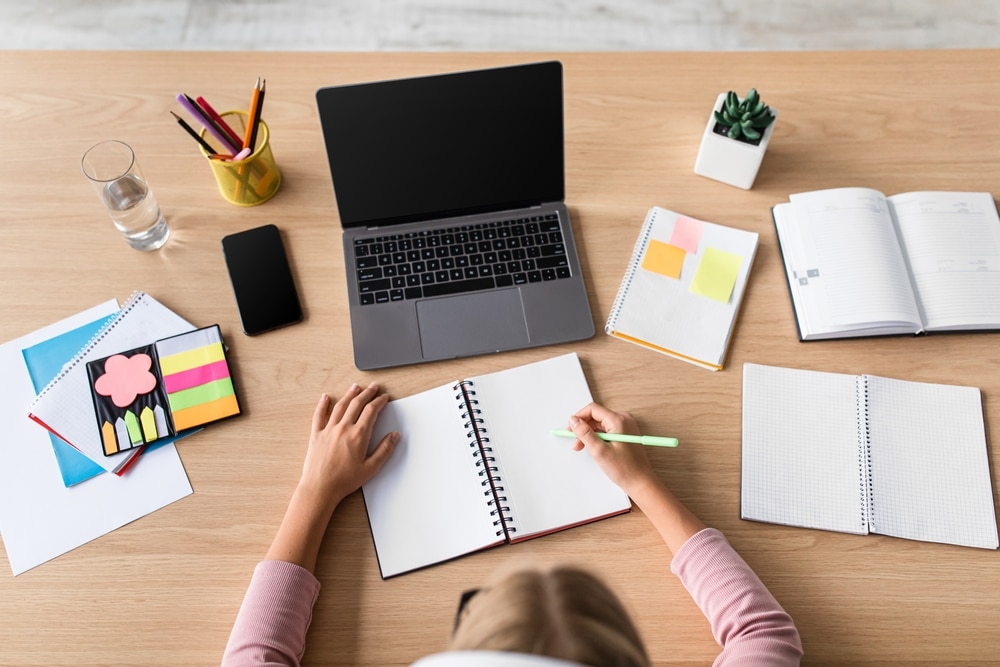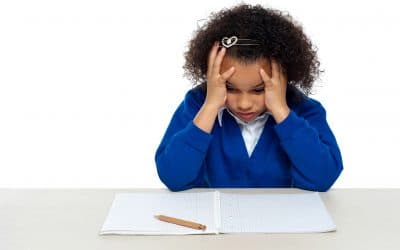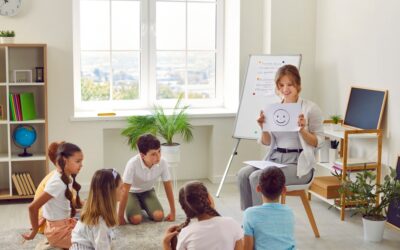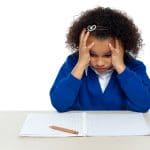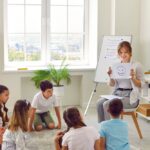A guide to planning lessons effectively
Planning lessons can be difficult and quite stressful for teachers. To constantly plan for the week ahead with fresh ideas and an aim at what pupils are learning isn’t the easiest. To assist you with preparing your lessons we have created a guide to planning lessons effectively. Use this guide to help you structure your lessons and make them engaging so pupils want to learn.
Think about an end first
The best way to plan lessons effectively is to plan backwards. It is crucial to think about the end first and work your way through the lesson to the start. It is simple for teachers to fall into different ways of planning such as focusing on activities where the activities come first, and the learning objectives are built around them. This can turn into a bad habit of trying to keep pupils busy.
Those types of lesson planning aren’t as effective as thinking about the end first. Backwards planning allows you to get clarity about what you want children to learn at the end. It involves breaking down, planning out and thinking about how the learning works and meets the curriculum. With a clear focus on what pupils will learn by the end of the lesson, this type of planning will successfully help children achieve what they need to learn and what you want them to know.
Plan the purpose of the lesson
To make sure your lessons are effective, you need to plan the purpose of the lesson. If you have a clear expectation of why the lesson needs to be taught, then your pupils will understand. Remember that you are preparing children for jobs that don’t exist yet. They need to learn how to take on ideas and how to come up with creative ideas too. The purpose of lessons needs to reflect this, and you must provide these opportunities within them.
To help establish the purpose of lessons, think about the why? This is for every step of the lesson – ask yourself – why do children need to know this? Also, think about how the lessons benefit pupils and what they can learn from the topic.
Identify learning objectives
Before planning your lessons, you need to think and identify the learning objectives. This goes hand in hand with the purpose of your lessons and thinking about the end first. A learning objective is what a pupil will know after the lesson rather than what they will be exposed to during it. It must be written in a language that children can understand so that it can be shared with them at the beginning of the lesson.
Once you have figured out how the lesson relates to the curriculum and made a learning objective, you can start to plan the activities and content of the lesson.
To see how to write learning objectives in a useful way for pupils, check out this table .
Make time for pupils to discuss
When planning your lessons, set time aside for group discussion. Discussion is vital to children’s learning as they can grasp listening to ideas and creating their own ideas through thinking creatively. Plus, discussion allows pupils to think about what they are learning in more depth and get different perspectives on the topic. This makes them learn more from others whose views are different. They can bring their individuality to the discussion and be heard whilst working together to solve or conclude.
Group discussions also lead to confidence in children’s ideas and belief in themselves. As well as confidence in socialising with others who they might not usually interact with.
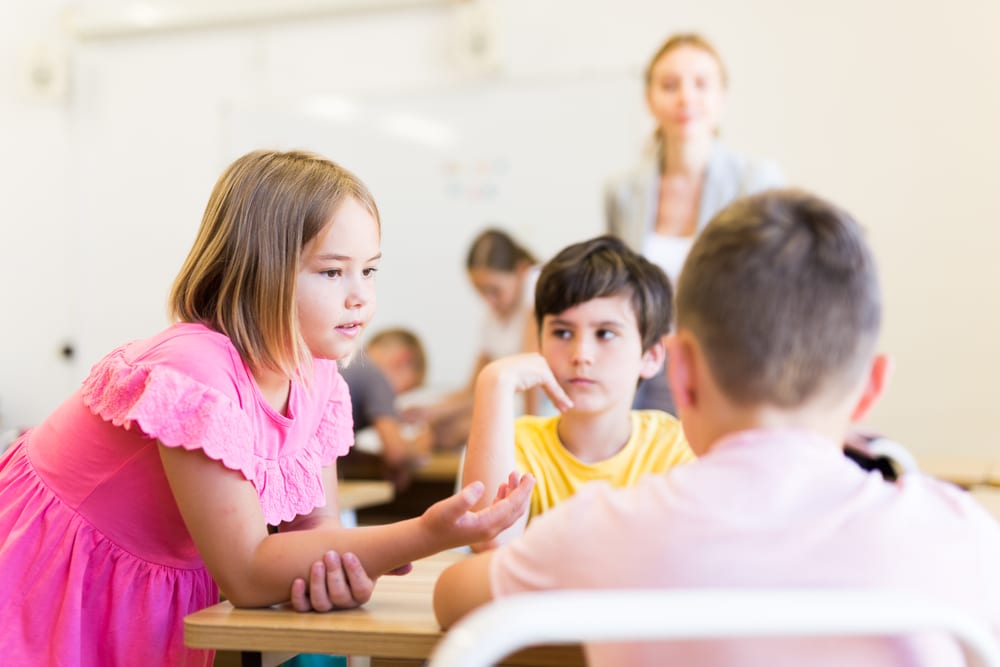
Listen to pupils
The key to planning lessons effectively is to take on board what your pupils say. It is vital for teachers to get honest feedback on their lessons from children. At the end of a week, why don’t you ask pupils to write down feedback on their learning experiences? This could be anonymous and put into a jar for you to read, so there isn’t any pressure. Having this allows you to take on board what went well and what didn’t for each pupil. Therefore, you can make changes when you are planning for the week ahead.
You can see from feedback if there is a major flaw in the way you structure lessons and can make alterations during planning. It can shed light on something you haven’t noticed before if multiple pupils say the same issue.
Plan learning activities
A large part of the planning process for lessons is laying out the activities pupils will be doing. Firstly, you will need to consider the types of activities your lesson will need. Ensure that the activities develop the skills, and knowledge pupils need to demonstrate their learning. The activities must be directly related to any learning objectives you have set out. Give pupils an opportunity within these activities to engage with others, practice skills and retain feedback in order to help them reach the objectives.
Once this is done, allocate time for each activity so that you can cover everything in the lesson. Remember to account for extra time for feedback and any questions as well as reflection for pupils to explain what they found easy/hard or what they have learnt.
Most importantly when planning activities for your lessons, ask yourself ‘how will I explain the topic?’ How can pupils be engaged? What will help pupils understand the topic better?
To help with thinking about activities why not look at a teacher planner for the subject?
Wrap up lessons- check pupils understanding
Think about how you should wrap up a lesson in a way that pupils can understand what they have learnt. Think about the topic and what works best to finish the lesson. The most popular way to wrap up a lesson is to check pupils understanding by asking questions or allowing questions to be asked. However, this doesn’t always suit every lesson. Here’s a short list of other ways you can wrap up lessons that you can think about when planning:
- Tie up loose ends
- Take a look at other topics coming up that relates to the subject
- Reflect on key information and reiterate it
- Make your way through common mistakes from the lesson
Plan learning that lasts
When planning lessons, always have in mind how you can make this learning last. For this, you need to consider how memory works and what will help lessons stick in children’s minds. To do this, you must start with planning for thinking. This is very simple to do as it’s considering what you want your pupils to think during the lesson. Doing this steers their learning and helps them to retain information as you are telling them what to think.
Next, create activities that unleash what your pupils already know and allow them to make connections with what they are learning. Children will instantly make connections to what they already know to understand something new. Steer them towards this thinking through what you do in your lessons, and they will start to remember the new learning just like the old!
Ensure to plan short lessons on one topic over the course of a week so that children can retain that information rather than trying to remember the whole topic from one lesson. Remember that practise also helps children to remember lessons so allow children to practise the mistakes they get in feedback and practise topics they struggle with.
Reflect on your lessons
The best way to plan lessons effectively is to reflect on each lesson afterwards. Think about what went well and what didn’t and contemplate the why. Jot down in a notepad what could be done to solve what didn’t work and list everything that did work. This will help you to improve your lessons, and you will always have something to refer back to when planning the next lesson. Plus, you can always identify major issues and deal with them instantly. Pair this reflection with the pupil feedback and constantly improve the way you organise your lessons.
Try these ideas on lesson planning to enhance the structure of how you work, get organised and improve lessons to benefit yourself and your pupils. Throughout planning for lessons, constantly think with the children in mind first and ask yourself questions from their perspective.
Following our guide to plan lessons effectively, will ensure that children get the best out of their learning and work towards their goals and objectives. Plus, implementing these into your planning strategy will help you to organise your lessons, feel motivated to carry them out and ease your workload.
To further assist you with activities and group learning/discussion, check out our ‘promoting friendships and sharing in the classroom’ blog. Perfect to aid teachers with how to successfully incorporate group work and discussion into lessons.
